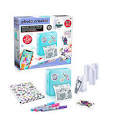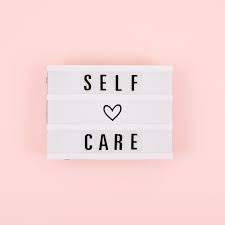Christian Gifts: Spreading Faith and Inspiration
Gift-giving is a beautiful way to express love, appreciation, and support for our friends, family, and loved ones. When it comes to finding the perfect gift for someone who holds their Christian faith close to their heart, there is a wide array of options that can truly touch their soul.
Christian gifts are not only symbols of religious devotion but also serve as reminders of the values and teachings that guide believers in their spiritual journey. These gifts can bring comfort, encouragement, and inspiration to those who receive them.
One popular category of Christian gifts is jewelry. Cross necklaces, bracelets with religious symbols, or rings engraved with Bible verses are timeless pieces that hold deep significance. They serve as constant reminders of faith and can be treasured for a lifetime.
For those who appreciate art and aesthetics, Christian artwork makes an excellent gift choice. Paintings or prints depicting biblical scenes or inspirational messages can adorn the walls of homes or offices, creating an atmosphere of peace and reflection. These pieces often carry profound meaning and can serve as conversation starters about faith.
Books are another thoughtful gift option for Christians. From Bibles to devotionals, theological works to inspirational stories, there is a vast selection available catering to different interests and spiritual needs. Books have the power to educate, enlighten, and strengthen one’s faith journey.
In recent years, personalized Christian gifts have gained popularity. Customized items such as engraved plaques or photo frames with meaningful scriptures or personal messages add a personal touch that shows thoughtfulness and care.
Additionally, there are numerous practical Christian gifts available that align with one’s faith. Coffee mugs with Bible verses or inspirational quotes provide a daily dose of encouragement during morning routines. Calendars featuring religious artwork or daily devotionals help individuals stay connected with their spirituality throughout the year.
When choosing Christian gifts, it’s essential to consider the recipient’s preferences and beliefs. Understanding their individual spiritual journey can help in selecting a gift that resonates deeply with them. Whether it’s for a baptism, confirmation, birthday, or any other occasion, Christian gifts have the power to uplift and inspire.
Moreover, these gifts can serve as meaningful tokens of support during challenging times. They can be a source of solace and strength when faced with adversity or uncertainty. Christian gifts remind individuals that they are not alone on their journey and that their faith provides comfort and guidance.
In conclusion, Christian gifts carry significant meaning beyond their material value. They embody faith, hope, and love while offering inspiration and encouragement. Whether it’s through jewelry, artwork, books, or personalized items, these gifts have the power to touch hearts and deepen one’s spiritual connection. So the next time you’re searching for a gift for a Christian loved one, consider the profound impact that a thoughtful Christian gift can have on their life.
7 Tips for Choosing Meaningful Christian Gifts
- Consider the recipient’s religious beliefs when choosing a Christian gift – if they are of a different faith, look for something that will still be meaningful to them.
- Think about the occasion – is it a special occasion like Easter or Christmas? If so, you may want to buy something more traditional such as a bible or crucifix.
- Look for items with inspirational messages or symbols that reflect the values and beliefs of Christianity such as crosses, angels and doves.
- Buy something practical – there are many Christian-themed items such as mugs, keyrings and bookmarks that can be used on an everyday basis which can make great gifts too!
- Take into account the age group of the recipient – if buying for a child you could opt for something like a colouring book featuring Bible stories or even an educational game about Christianity instead of traditional religious symbols/items.
- Personalise your gift – adding an inscription to your chosen item will make it extra special and memorable for the recipient!
- Shop around – there are plenty of online stores which offer Christian gifts so take time to browse different websites before making your purchase in order to get the best deal possible!
Consider the recipient’s religious beliefs when choosing a Christian gift – if they are of a different faith, look for something that will still be meaningful to them.
Consider the Recipient’s Beliefs: Choosing Meaningful Christian Gifts for All
When selecting a Christian gift for someone, it’s important to consider their religious beliefs. While the intention is to share faith and inspiration, it’s equally crucial to respect the recipient’s personal journey, even if they follow a different faith.
In a diverse and multicultural world, we encounter people with various religious backgrounds. It’s essential to approach gift-giving with sensitivity and thoughtfulness. Instead of focusing solely on the Christian aspect, look for something that will be meaningful to them regardless of their faith.
One approach is to choose gifts that promote values shared across different religions. For example, kindness, love, compassion, and gratitude are universal principles that resonate with people of all faiths. Consider items like inspirational books or artwork that focus on these themes rather than explicitly Christian symbols or scriptures.
Another option is to explore gifts that celebrate common elements found in different religions. For instance, items symbolizing peace or harmony can be appreciated by individuals from diverse backgrounds. A dove pendant or a peace-themed wall hanging can convey a message of unity and goodwill.
Personalized gifts can also bridge the gap between faiths. Engraving a meaningful quote or message that aligns with universal values allows you to create a gift that speaks directly to the recipient’s heart without imposing specific religious beliefs.
Remember, the goal is not to convert or persuade but rather to show respect and appreciation for the recipient’s individuality. By choosing a gift that acknowledges their beliefs while still being meaningful in its own right, you demonstrate understanding and inclusivity.
Ultimately, when giving a Christian gift to someone of a different faith, it’s important to focus on shared values and sentiments rather than explicitly religious symbols or texts. By considering the recipient’s beliefs and choosing an item that resonates with them on a personal level, you can create an opportunity for connection and understanding.
In this way, Christian gifts can become a means of fostering dialogue, promoting respect, and building bridges between different faith traditions. By embracing the diversity of beliefs and finding common ground, we can celebrate our shared humanity and strengthen the bonds that unite us all.
Think about the occasion – is it a special occasion like Easter or Christmas? If so, you may want to buy something more traditional such as a bible or crucifix.
When it comes to choosing Christian gifts, considering the occasion can add an extra touch of thoughtfulness and relevance. Special occasions like Easter and Christmas hold significant meaning in the Christian faith, and selecting a more traditional gift can be a wonderful way to honour these celebrations.
For Easter, a time when Christians commemorate the resurrection of Jesus Christ, gifts that focus on the message of new life and hope are particularly meaningful. A beautifully bound Bible or a devotional book that explores the themes of resurrection and redemption can be cherished gifts. Additionally, a crucifix pendant or a cross necklace serves as a powerful symbol of Christ’s sacrifice.
Similarly, during Christmas, which celebrates the birth of Jesus Christ, traditional Christian gifts can help to capture the spirit of this joyous season. A nativity set depicting the scene of Jesus’ birth is a classic choice that can be displayed year after year as a reminder of the true meaning behind Christmas. Alternatively, an illustrated children’s book that tells the story of Jesus’ birth can be an engaging gift for young ones.
While these traditional gifts are especially fitting for Easter and Christmas, they can also hold significance throughout the year. Birthdays or anniversaries related to one’s faith provide opportunities to gift items like personalised Bibles with inscriptions or crucifixes that symbolise devotion and spiritual growth.
Remembering the occasion when selecting Christian gifts helps ensure that your present aligns with the significance and symbolism associated with that particular time in the Christian calendar. It shows your understanding and respect for their faith journey while fostering a deeper connection between you and your loved ones.
Ultimately, whether it’s Easter, Christmas, or any other special occasion within the Christian calendar, choosing traditional items such as Bibles or crucifixes adds depth and meaning to your gift-giving gesture. By considering these factors alongside personal preferences, you can select a truly thoughtful present that resonates with their faith and brings joy to their heart.
Look for items with inspirational messages or symbols that reflect the values and beliefs of Christianity such as crosses, angels and doves.
Christian Gifts: Finding Inspiration in Symbols and Messages
When it comes to choosing the perfect Christian gift, looking for items that carry inspirational messages or symbols can add a deeper layer of meaning. These symbols and messages reflect the values and beliefs of Christianity, serving as reminders of faith and inspiration.
One of the most recognizable symbols in Christianity is the cross. It represents the ultimate sacrifice made by Jesus Christ and serves as a powerful reminder of His love and redemption. Crosses can be found in various forms, from pendants to wall hangings, making them versatile gifts that can be cherished in different ways.
Angels are another significant symbol in Christianity. They are often seen as messengers from God, providing comfort, protection, and guidance. Angel figurines or ornaments can serve as reminders that believers are not alone on their spiritual journey, offering reassurance during challenging times.
The dove is yet another symbol commonly associated with Christianity. It represents peace, purity, and the Holy Spirit. Dove-themed gifts such as artwork or jewelry can evoke a sense of tranquility and remind individuals to seek inner peace through their faith.
In addition to symbols, inspirational messages play a vital role in Christian gifts. Bible verses or quotes that reflect the core teachings of Christianity can be found on various gift items such as plaques, mugs, or even clothing. These messages serve as daily reminders of God’s love and provide encouragement to stay steadfast in one’s faith.
When searching for Christian gifts with inspirational messages or symbols, it’s important to consider the recipient’s personal preferences and beliefs. Each individual may resonate with different symbols or find particular verses more meaningful than others.
Furthermore, these gifts have the power to inspire conversations about faith. They can spark discussions about personal experiences, spiritual journeys, or interpretations of scripture. Sharing these conversations deepens connections among believers while fostering a sense of community rooted in shared values.
In conclusion, when selecting Christian gifts for your loved ones, looking for items with inspirational messages or symbols can add a special touch. Symbols such as crosses, angels, and doves carry profound meaning in Christianity, reminding individuals of their faith and the values they hold dear. These gifts serve as constant reminders of God’s love, providing inspiration and encouragement in their daily lives. So, embrace the power of these symbols and messages when choosing Christian gifts that will truly touch the hearts of those you care about.
Buy something practical – there are many Christian-themed items such as mugs, keyrings and bookmarks that can be used on an everyday basis which can make great gifts too!
Christian Gifts: Practical and Meaningful
When it comes to choosing Christian gifts, practicality can go hand in hand with meaning. While traditional religious items like crosses and artwork hold deep significance, there are also plenty of everyday items that can serve as reminders of faith and make great gifts.
One practical tip is to consider Christian-themed items that can be used on a daily basis. Mugs, for example, are a popular choice. Imagine starting each morning with a cup of coffee or tea in a mug adorned with an inspiring Bible verse or uplifting message. It’s a simple yet powerful way to infuse faith into the routines of everyday life.
Keyrings are another practical option. They are carried around daily, serving as a constant reminder of one’s faith wherever one goes. Whether engraved with a meaningful scripture or featuring a religious symbol, these keyrings can provide comfort and encouragement throughout the day.
Bookmarks are not only useful for marking pages but also offer an opportunity to incorporate faith into reading habits. A bookmark featuring a favourite Bible verse or an inspirational quote can enhance the reading experience and serve as a gentle reminder of God’s presence.
These practical Christian gifts have the advantage of being both functional and meaningful. They seamlessly integrate into daily life while providing moments of reflection and connection with one’s faith.
In addition to their practicality, these items also make excellent gifts for various occasions. Birthdays, graduations, or even just as tokens of appreciation – they are versatile enough to suit any celebration or moment where you want to show your support for someone’s spiritual journey.
Moreover, these practical Christian gifts can be easily personalised to suit individual preferences or tastes. With countless designs and styles available, you can find something that resonates with the recipient on a personal level while still reflecting their faith.
So next time you’re looking for a Christian gift that combines utility with spiritual significance, consider something practical like mugs, keyrings, or bookmarks. These everyday items can serve as constant reminders of faith, bringing comfort, inspiration, and a touch of the divine into the recipient’s daily life.
Take into account the age group of the recipient – if buying for a child you could opt for something like a colouring book featuring Bible stories or even an educational game about Christianity instead of traditional religious symbols/items.
When it comes to choosing Christian gifts, it’s important to consider the age group of the recipient. While traditional religious symbols and items are meaningful for adults, they may not resonate as strongly with children. Instead, you can opt for gifts that are tailored to their age and interests.
For children, there are plenty of options that can introduce them to the teachings of Christianity in a fun and engaging way. A great choice could be a colouring book featuring Bible stories. This not only allows them to explore their creativity but also helps them learn about important biblical narratives.
Educational games about Christianity can also be a fantastic gift idea for children. These games provide an interactive experience where they can learn about the faith while having fun. Whether it’s a puzzle, board game, or quiz, these activities make learning about Christianity enjoyable and memorable.
By choosing age-appropriate Christian gifts for children, you can foster their curiosity and understanding of their faith from an early age. It lays the foundation for them to develop a deeper connection with their spirituality as they grow older.
Remember, the goal is to provide gifts that inspire and educate while being enjoyable for the recipient. Taking into account the age group ensures that your gift will be both meaningful and appropriate for their stage of life.
So next time you’re searching for a Christian gift for a child, consider opting for something like a colouring book featuring Bible stories or an educational game about Christianity. These thoughtful choices will not only bring joy but also help nurture their spiritual growth in a way that is engaging and relatable to them.
Personalise your gift – adding an inscription to your chosen item will make it extra special and memorable for the recipient!
Personalise Your Christian Gift: Adding a Touch of Meaning
When it comes to selecting a Christian gift for someone special, going the extra mile to personalise it can truly make a difference. Adding an inscription or personal message to your chosen item not only enhances its beauty but also creates a lasting memory for the recipient.
Personalisation adds a unique touch that shows thoughtfulness and care. It transforms an ordinary gift into something extraordinary, tailor-made for the person you’re gifting it to. By including an inscription, you can convey heartfelt sentiments, share meaningful Bible verses, or simply express your love and appreciation.
Imagine presenting a cross necklace with the recipient’s name engraved on it or gifting a beautiful Bible with a personal message inside. These small additions make the gift more than just an object; they turn it into a cherished keepsake that holds deep sentimental value.
The act of personalising your Christian gift demonstrates that you have taken the time to consider the recipient’s individuality and spiritual journey. It shows that their faith and well-being are important to you. Such attention to detail can bring joy and comfort, reminding them of their unique place in your life.
There are various ways to personalise Christian gifts. Engraving is a popular choice for jewelry, allowing you to add names, dates, or meaningful phrases. For books or artwork, you can include handwritten notes or inscribe significant scriptures that resonate with the recipient.
Personalised Christian gifts are perfect for all occasions – from baptisms and confirmations to weddings and anniversaries. They become cherished mementos that serve as constant reminders of faith and love throughout one’s journey.
In addition to making the recipient feel special, personalised gifts also foster deeper connections between individuals. They create moments of shared appreciation and reflection on faith values. Moreover, they encourage conversations about spirituality and provide opportunities for growth in one’s relationship with God.
When selecting a Christian gift, consider how you can add that personal touch. Reflect on the recipient’s personality, their spiritual beliefs, and the message you want to convey. By personalising your gift, you can ensure that it will be treasured and remembered for years to come.
In conclusion, personalising your Christian gift adds an extra layer of meaning and significance. It elevates the gift from a simple gesture to a heartfelt expression of love, faith, and appreciation. So, next time you’re searching for a Christian gift, consider how you can make it truly special by adding an inscription or personal message. Your thoughtfulness will undoubtedly touch the recipient’s heart and create a lasting memory.
Shop around – there are plenty of online stores which offer Christian gifts so take time to browse different websites before making your purchase in order to get the best deal possible!
Shop Around: Discover the Best Deals on Christian Gifts Online
When it comes to finding the perfect Christian gift, the online world offers a treasure trove of options. With numerous online stores dedicated to offering a wide range of Christian gifts, taking the time to browse different websites can help you find the best deal possible.
One of the advantages of shopping online is the convenience it offers. You can explore countless options from the comfort of your own home, avoiding the hassle of visiting multiple physical stores. Plus, with just a few clicks, you can compare prices, read reviews, and find unique items that may not be available locally.
To make sure you get the best value for your money, it’s important to shop around. Different online stores may offer varying prices and discounts on similar products. By taking the time to compare prices and check for any ongoing promotions or sales, you can ensure that you’re getting a great deal on your Christian gift.
In addition to comparing prices, browsing different websites allows you to explore a wider selection of products. Each online store may have its own unique range of Christian gifts, giving you more options to choose from. Whether you’re looking for jewelry, artwork, books, or personalized items, exploring different websites can help you find exactly what you’re looking for.
Don’t forget to also consider factors such as shipping costs and delivery times when comparing different online stores. Some may offer free or discounted shipping for certain orders or have faster delivery options available. Taking these factors into account can help ensure that your gift arrives in a timely manner without any extra costs.
Furthermore, reading customer reviews and ratings can provide valuable insights into the quality and reliability of both the product and the online store itself. Checking for feedback from previous customers can give you peace of mind when making your purchase.
So next time you’re in search of a Christian gift, take advantage of the convenience and variety offered by online shopping. Shop around and explore different websites to find the best deals, compare prices, and discover unique items that will truly touch the heart of your loved ones.
Remember, a little extra time spent browsing different online stores can lead to finding the perfect Christian gift at the best price. Happy shopping!






